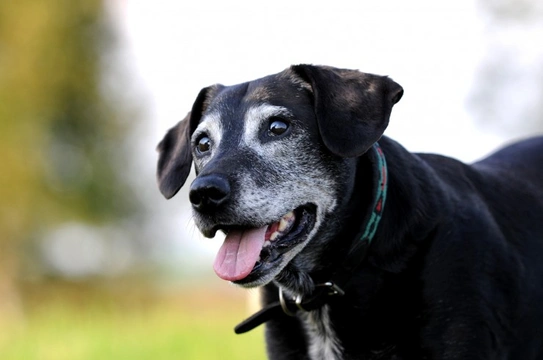
Ten great reasons for adopting an older dog
When it comes to rescue shelters and rehoming dogs, it is a simple fact that puppies and younger dogs pass through the shelter at a much faster rate of turnover than older dogs; say, those over the age of four or five. While it is understandable that many people prefer to adopt a younger dog for a variety of reasons, such as the likelihood that the dog will have a longer lifespan ahead of them, many older dogs have to wait in the shelter for much longer, in search of their forever home.
Often, people steer clear of older dogs due to their potentially unknown history and because it means that they will miss the adorable puppy stage, but there are a great many good reasons for adopting older dogs, which often provides distinct advantages over puppies. In this article, we will look at ten great reasons for adopting an older dog. Read on to learn more!
Older dogs still have the capacity to learn
One thing that puts many people off adopting an older dog is the concern that that dog will already be set in their ways, and that any behavioural problems that they may have or will develop will not be able to be corrected. However, it is a huge myth that you can’t teach an old dog new tricks, and all dogs retain the capacity to learn and acquire new skills throughout their lives.
Old dogs deserve a good life too
The fact that older dogs end up in shelters at all is very sad; it means that somebody has already let them down, and reneged on their implicit promise to take care of the dog for the duration of their life, even if things get tough. Many dogs get a raw deal in general from humans, and older dogs deserve the chance to have a happy, stable home life just as much as puppies do.
Older dogs are calmer and easier to manage
Puppies are cute, funny and awesome, but they can also be a real pain! Older dogs will of course be rather more calm and manageable than puppies or younger dogs, making them more laid back and easier to cope with.
Older dogs are less time intensive
No dog should be left alone for long periods of time, but the younger the dog is, the less time you can leave them for fairly and safely. This means that older dogs will generally be perfectly used to having to spend time alone while you do other things, and will not be as apt to have periods of separation anxiety or unhappiness when they have to entertain themselves.
Older dogs tend to be more relaxed about exercise
Many older dogs will still require a significant amount of exercise, depending on their breed and activity level, but even for the most lively, active breeds such as the Border collie, older dogs of the breed will be more laid back and less highly strung when it comes to exercise than those under the age of around two or three.
Older dogs will usually be house trained
Effective and reliable house training is one of the biggest challenges of taking care of a puppy or younger dog, but an older dog will already know all about toileting outside, asking to go out, and not doing their business inside the house.
Older dogs may be a good match for older people
For older people who have spent their whole lives with a canine companion, the idea of life without a dog during their twilight years can feel very empty and lonely. However, entirely understandably, many older people are reluctant to get a new dog when they lose their old one, out of concern over the fact that they cannot be sure of their own future health and longevity over the coming couple of decades, and what would happen to their dog if they were unable to care for them or pass away.
Adopting an older dog can allow people to spend their final years with a dog, without the anxiety of having to wonder if the dog will outlive them, and what may happen to the dog after their death.
Older dogs will already be socialised
Socialisation is vital for dogs of all ages, and it can take a long time to properly socialise a puppy and expose them to lots of other dogs and teach them how to get on. Older dogs will already have gone through their key socialisation period and will generally be sound with other dogs, and they may even have learnt other skills like getting on with cats too!
You know what you’re getting in terms of size and temperament
Buying or adopting a puppy, particularly of a mixed breed, is something of a lottery in terms of the ultimate size, appearance and temperament that the dog will exhibit when adult. If you adopt an adult dog that is fully grown, however, the guesswork is gone, and you will know that what you see when you adopt is what you will get!
You may be saving a life
Older dogs are, as mentioned, often harder to rehome than younger dogs, which means that they may spend several months or even longer in the shelter. The vast majority of shelters in the UK do not put healthy dogs to sleep, but spending months in a shelter is not good for a dog, and also of course, takes up a spot that there are many other dogs waiting to fill.
Adopting an older dog may mean that you are actually saving a life; either of the dog that you adopt, or of another dog that you may never meet, who really needs that spot in the shelter and the chance at a new life too.
If your interested in adopting an older dog, why not visit our dog adoption section on Pets4Homes.



